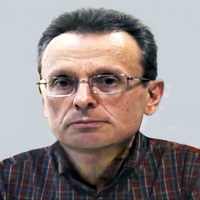License:
 Open Access by International Journal of Bioanalysis & Biomedicine is licensed under a Creative Commons Attribution 4.0 International License. Based on a work at SciRes Literature..
Open Access by International Journal of Bioanalysis & Biomedicine is licensed under a Creative Commons Attribution 4.0 International License. Based on a work at SciRes Literature..
Manuscript should be submitted in Word Document (.doc or .docx) through online form or can be mailed to the particular journal's E-mail ID or to submit@scireslit.com, scireslit@gmail.com
Research Articles
Review Articles
Articles
Our Vision
Author Feedback
Hanna Balakier
Hanna Balakier, CReATe Fertility Centre, Toronto, ON, Canada
Meysoon Adil Abdelrahman Elagib
Senior Resident of Internal Medicine, Khartoum, Sudan
I am very happy with your editing of the article. The structure is very appealing and the coloring fits the topic well.
I especially like the design of the tables.
I am looking forward for future publications.
International Journal of Virology & Infectious Diseases
Frauke Elbnik
Christian-Albrechts University, Germany
I am very glad to mention that Scireslit worked in close coordination with me to enable me successfully to complete my article for their journal and thereby enabled me to share my ideas with other researchers and scientists. The team is very responsive and knowledgeable. This platform has provided me an opportunity to collaborate my learning with other subject matter experts in the field of healthcare. Thanks to the entire Scireslit team
Rayees.Y.Sheikh
Nephrologist, Fellowship in Advanced Hemodialysis - Canada
SciRes not only ensures that the articles can be published smoothly, but make sure there are readers' market for my articles as they are easily accessible. I can also improve the lack of research through the results of the peer review system. The diversity of expertise in the editorial board ensures the continuity and smoothness of future publications in order to raise the level of public reading in general and assist the next author's research.
Uqbah Iqbal
Socioeconomic Researcher, Research for Social Advancement, Malaysia
Michael AB Naafs
Interrnist-Endocrinologist at Naafs International Health Consultancy, The Netherlands
International Journal of Clinical Endocrinology has a good Editorial Team!!!
Mario Ciampolini
University of Florence, Italy
Dear Rose, The Editorial services are perfect.
Angelou An.
Dr. Anastasios Angelou
Health center Alexandras, Athens, Greece
I have been very pleased with your publication process. It is very thorough and very professionally done. There was very dedicated reviewer and editorial process to ensure a very high scientific standard is achieved when a manuscript is accepted by your journal through the very disciplined peer review process. The overall management and integrity of the publisher is deserving of high praise. I wish you every success.
Prof. Woo Keng Thye
Dept of Renal Medicine, Singapore General Hospital, Singapore
Starting from the process of preparing the manuscripts and until the release of the electronic version of the articles, I felt a benevolent attitude towards our work and I was sure that I was dealing with high-level professionals. All problems encountered were resolved as soon as possible. I sincerely wish prosperity to your publishing house and the journals mentioned above.
Alexander Naumkin
Senior Scientist of X-ray Diffraction, A.N.Nesmeyanov Institute of Organoelement Compounds, Russia
Pedro Jose Gonzalez Matarin
Professor of Sports and Exercise in University of Almeria, Spain
The publication process in the America Journal of Nanotechnology & Nanomedicine is simple, fast and of good quality. I wish the Journal a successful futureI was very satisfied with the performance of the editorial team. The paper was processed very quickly and uploaded to the homepage.
Cordin Arpagaus
University in Buchs, SwitzerlandCHRISTOS D. GEORGIOU
University of Patras, Greece

